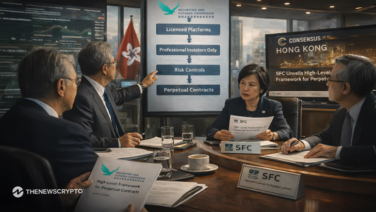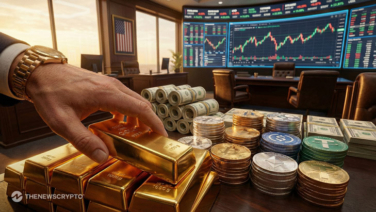Non-fungible tokens (NFTs) are playing a huge role in the market. However, there are few wondering whether NFTs worth the money or the hype. More so, few experts say NFTs are a bubble poised to pop.
Now let’s deep dive into what is NFT.
What is NFT?
A non-fungible token (NFT) is a unique digital token developed using blockchain technology. Moreso, NFTs indicate a wide variety of tangible and intangible items. NFTs usually provide digital ownership, as well as hold real-world prices.
There are few NFT, in reality, to consider, however, they include airline mileage points, event tickets, in-game items, Facebook and Twitter social handles, and many more. Users can own these by context, but it cannot be owned fully.
Moreover, NFTs could be the most favorable solution, when considering digital ownership. However, a coordination layer cryptocurrency is provided due to blockchain. Therefore, offering users full ownership and control of their assets.
NFTs have individual characteristics, to make them look unique, rare, and indivisible. In addition, NFTs are created on smart contracts. These contracts contain certain data that makes each non-fungible token stay different from one another. Hence, these cannot be swapped and broken down into smaller units.
Furthermore, NFTs indicate an expanding digital resource economy where users can prove ownership of goods, physical or virtual, through unique digital tokens recorded on the blockchain.
How Does NFTs Work?
NFTs are present on a blockchain. More so, blockchain is a distributed public ledger that stores the transaction records. Notably, NFTs are present on the Ethereum blockchain. Common non-fungible token standards include ERC721 and ERC1155.
Even more, NFTs are developed or minted from digital objects that indicate both intangible and tangible items in the form of Arts, GIFs, Collectibles, Designer sneakers, Music, Virtual avatars, and video game skins.
NFTs also consider tweets count. Recently, Twitter co-founder Jack Dorsey sold his first-ever tweet as an NFT for over $2.9 million.
Moreover, NFTs can have only one owner at a time. NFTs’ unique information makes it easy to verify their ownership and transfer tokens between owners. The owner or creator can also store specific data inside them. For instance, artists can sign their artwork by adding their signature in NTFs metadata.
Uses of NFTs
NFTs and blockchain technology provide artists and content creators an opportunity to monetize their wares. However, artists no need to rely on galleries or auction houses to sell their art. Rather the artist could sell it directly as an NFT to the customer. This also makes users get more profits.
Added to this, artists can program the royalties so they will get a percentage of sales when the art is sold to a new owner. However, this is a fantastic feature as artists will not get future proceeds after their art sold first.
Not only the Art to make money with NFTs. Brands including Charmin and Taco Bell have auctioned off-themed NFT art to raise funds for charity. Charmin dubbed its offering “NFTP” (non-fungible toilet paper). And in minutes Taco Bell’s NFT art sold out, with the maximum bids coming in at 1.5 wrapped ether (WETH).
In February, Nyan Cat, a 2011-era GIF of a cat with a pop-tart body, sold for nearly $600 thousand. And NBA Top Shot created over $500 million in sales as of late March.
Even celebrities like Snoop Dogg and Lindsay Lohan are entering into the NFT bandwagon, providing unique memories, artworks, and moments as securitized NFTs.
Where to Get NFTs
Once users get their wallet set up and funded, there is no shortage of NFT sites to shop. Currently, the largest NFT marketplaces include as follows
OpenSea.io
OpenSea is the huge peer-to-peer marketplace for digital currency goods. Here, the blockchain secures game items, collectibles, and other virtual goods. On OpenSea, anyone can sell or buy these items securely.
Users can Jplug in a Web3 wallet such as MetaMask and go to the Browse tab. However, the application will search users’ wallets for all the collectibles they have and the assets (ETH, DAI, etc.) they need to purchase in the marketplace.
Rarible
Similar to OpenSea, Rarible is a democratic, open marketplace that enables artists and creators to issue and sell NFTs. RARI tokens offered on the platform enable holders to weigh in on features like community and fee rules.
WAX.io
Another huge and highly active NFT market is Wax.io. Here, users can mint their own NFTs easily as well as buy, sell, and create auctions. WAX.io is called the “King of NFTs,” its new tokenomic model allows earning rewards in the form of Ethereum and WAXG governance tokens.
Register into a WAX Cloud Wallet (WCW) account, and login with a username and password. On the other hand, users can even use their social media account like Twitter, Facebook, or Reddit. After this, users can start buying, selling, and trading WAX-supported NFTs.
More so, these platforms and others are hosts to thousands of NFT collectors and creators. Moreover, they do their research carefully before buying. Some artists have fallen victim to impersonators who have sold their work without their permission.
In addition, the verification processes for creators and NFT listings aren’t consistent. Furthermore, some are more stringent than others. OpenSea and Rarible will not require owner verification for NFT listings.
Conclusion
Notably, the Non-Fungible token industry is considered to be a young sector. However, the NFTs still provide a long way before going mainstream. However, with their potential, NFTs can create sufficient interest and value to follow the paths of bitcoin and other altcoins.
More so, the NFTs can offer an appreciable return on investment and also provide the average investors a chance to access fractional digital investment assets. Furthermore, there are many who can do with NFTs. Users can sell, buy, and trade it on a marketplace. In addition, NFTs can also be used as a decentralized application or better present in public.
Furthermore, staying as a promising asset class based on blockchain technology, NFTs can revolutionize a lot of sectors in the industry. Sooner than later, many non-fungible token use cases will emerge and non-fungible token projects will be in demand more than ever.
Recommended for You








